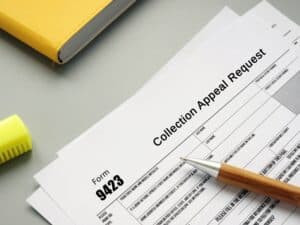Taxpayer will do best by responding early to IRS tax levy
If you own a small business in Nevada, federal income taxes must be paid. In some instances, the legal structure of your business will be set up to roll all of your tax payments into your individual income tax return. In a larger corporate structure, you may have separate tax bills for the business and personally. In any event, if you get significantly behind in any of your tax debt by not paying the tax due on time, you may be facing an IRS tax levy on your bank accounts.
As a general rule, the IRS will not levy on your accounts unless you have failed to respond to a notice and demand for payment. Additionally, the agency is supposed to send you a more formal “Final Notice of Intent to Levy and Notice of Your Right to a Hearing” at least 30 days before taking action to execute a levy. The aggravating thing for many taxpayers is that, with the exception of the required notice, the IRS can go ahead and seize your money regardless of whether you have defenses and reasons why you don’t owe it.
The agency can also levy on your funds even if the amount that the IRS is seeking is substantially more than what you think you owe. Obviously, in such situations, you will do best by taking prompt preventative action as soon as you get an initial notice of taxes due. At the very latest, you will want to act immediately upon receiving an actual final notice of intent to levy.
A likely first response to an IRS tax levy in Nevada or elsewhere is to contact the IRS officer listed on the notices — he or she is the point person in control of the matter. You can also ask to speak to a supervisor. Beyond that, when there is a serious or systemic problem, you will be best served by consulting with your accountant or tax attorney to try and determine the nature of the problem and take action to correct it. Your attorney will guide you through the appeals process if a preliminary resolution is not achieved.
Source: theworldlink.com, “Help! The IRS has my money!“, Dec. 13, 2014




